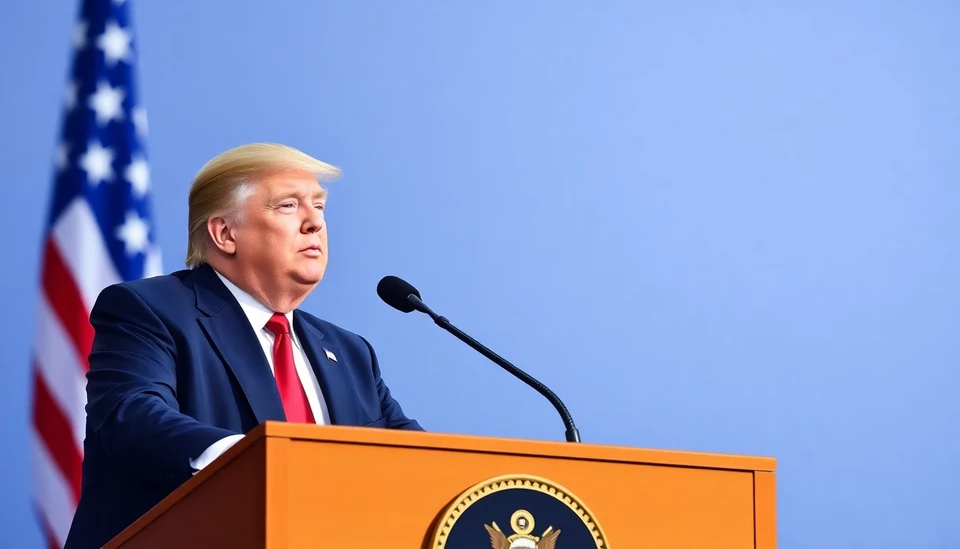
The recent announcement from former President Donald Trump has left many climate scientists and political analysts in a state of apprehension as it introduces significant uncertainty surrounding one of the world’s most referenced climate reports. Trump, who has expressed skepticism about climate change in the past, is set to reinstate policies reminiscent of his previous administration, which many believe could undermine years of global climate research and collaboration.
In a bold declaration, Trump stated his intention to reverse key regulations aimed at reducing carbon emissions, thus casting a shadow over the efforts taken by previous administrations to address climate change. These proposed changes come as a part of his broader agenda to revive the fossil fuel industry, promising to boost job creation in sectors that have previously faced restrictions under environmental policies.
The Intergovernmental Panel on Climate Change (IPCC) report, which is one of the most scrutinized documents on climate science worldwide, serves as a pivotal guideline for policymakers and researchers. Trump's plans to challenge the core tenets of this report raise concerns that it could lead to a decrease in effective climate action at both national and international levels.
Experts warn that Trump's approach may negate the critical findings of the IPCC, which clearly outline the dire consequences of inaction toward climate change, alongside the urgent need for global cooperation to mitigate its effects. The potential for a rollback on climate policies might not only affect the U.S. standing in international climate negotiations but could also embolden other countries to follow a similar path, complicating global efforts to combat climate change.
Reaction from the scientific community has been swift and overwhelmingly critical. Many climate scientists fear that Trump's renewed focus on fossil fuels and disregard for established scientific consensus could lead to increased carbon emissions, exacerbating the already severe impacts of global warming. The alarm is further fueled by the potential loss of funding for climate research, which would stall progress in understanding and mitigating climate risks.
In light of these developments, several international climate organizations have begun mobilizing to fortify the imperatives outlined in the IPCC report. They are predicting that the next few years will be crucial, not just for the U.S., but for global climate governance as a whole. Collaborative efforts and initiatives will be essential to counteract any withdrawal in commitment from major emitters like the United States.
As Trump moves to solidify his influence on environmental policy once more, the global community remains on edge, assessing how his decisions could redefine climate action. The stakes are high, and the outcome of this political shift will be closely watched in coming months, particularly as world leaders prepare for upcoming climate summits where critical decisions about our planet’s future will be made.
The intertwining of political agendas and climate science signifies a pivotal moment where leadership can either propel action towards sustainability or spiral into a deeper climate crisis.
As this story unfolds, the dialogue surrounding climate change remains urgent, and how leaders respond will determine the trajectory of environmental action for years to come.
#ClimateChange #Trump #IPCC #FossilFuels #EnvironmentalPolicy #ClimateCrisis #GlobalWarming #Sustainability
Author: Sophie Bennett




